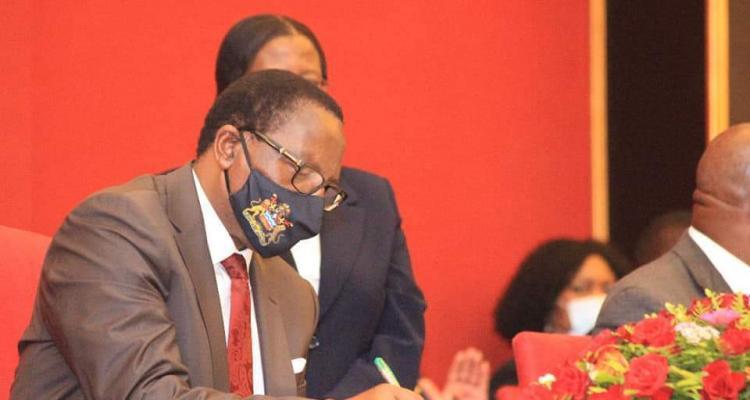
Once upon a time, there was a village in a valley straddling a river called Lawi.
Its people earned their livelihoods by subsistence farming; cultivating various crops by the river. One day, as they were tending their fields, they noticed a baby floating downstream.
One villager rushed into the waters, grabbed the baby and brought it to the riverbank. Other villagers commended him, and together, they ensured the baby’s safety and recuperation.
Not too many days passed before more babies came floating downstream.
Villagers joined forces and laboured hard to save them. The appearance of babies on the river soared. The whole village was soon performing rescue efforts; pulling babies out of the river, bathing, cleaning them, and making sure they were looked after.
Of course, not all babies were being rescued. Some became crocodile prey, while others drowned, the villagers’ valiant efforts notwithstanding. Undaunted, the villages continued saving the babies.
However, exhaustion and fatigue crept in. Fuses became very short, and tempers flared quickly. At this point, one young man was seen running northward along the bank of Lawi River.
Someone shouted, “Where are you going? We need all hands here to save the babies!”
The youth responded, “I am going upstream to find the son of a gun throwing the babies into the river!”
Some villagers commended the young man for such a brilliant idea. Sending the young man, or even a contingent upstream to see where the babies were coming from and finding out the root of the problem would perhaps ease their effort and could even stop whatsoever was dumping babies into the river, potentially eliminating the exhausting and time-consuming crusade.
Others disagreed and hullabaloo ensued.
The opposing minds countered that all hands were needed on deck to rescue as many babies as possible. The others still contended that there was a need to investigate upstream to nip the evil in the bud.
“Can’t you see? If we find out how these babies are falling into the river in the first place, we can stop this, and no more babies will drown. We should deploy a team upstream to eradicate the cause of the problem!”
“But it’s too risky,” others insisted. “It might fail or take too long. We will lose too many lives!”
“But don’t you see that we are being overwhelmed and babies will die anyway. Let us go upstream to find out the underlying cause.”
Deadlocked, two delegations were dispatched to the Village Chief for advice and a decision.
The chief, wanting to be seen neutral, appointed a committee of impis to deliberate on the predicament. Committees in place, the chief took a backseat on his ndalema, meanwhile entertaining delegations of visitors and visiting neighbouring villages on one pretext or another.
With some folks appointed into committees, there were even fewer hands to perform the now 24-hour rescue operation, pulling babies from Lawi River, bathing and cleaning them and making sure they were allocated foster parents.
After a while, villagers started grumbling. The work was becoming excruciating. The chief, hearing of increasing discontent, was regularly addressing them to placate them.
After zero progress from the committees, the chief expressed his vexation that the people and committees he had appointed were sabotaging him by not resolving things quickly.
Now, unknown to everyone, the chief had lived upstream as a young boy, long before assuming the chieftaincy. He still had contacts, and through those, he knew precisely why babies were being dumped into the river.
Yet, instead of getting to the bottom of the issue, he had opted to delegate this crucial issue. Worse, despite the lack of progress, this chief seemed content to merely express vexation.
Let me digress.
Our beloved country, this beautiful land of ours straddling Lake Malawi, has a multitude of challenges. These challenges are why, among other things, President Peter Mutharika and his Democratic Progressive Party (DPP) was rejected by voters. Conversely, promising to resolve the challenges that Mutharika failed to fix is how current President Lazarus Chakwera was voted into office.
Unlike the hapless villagers of Lawi Village, we know that most, if not all, our problems are rooted in public resources’ mismanagement.
Against this background, Chakwera and his pals promised to:
- a) apprehend all thieves,
- b) recover funds stolen from public coffers and
- c) invest these and other funds safeguarded from theft into our livelihood.
By so doing, social service delivery would improve, infrastructure would be developed with a million jobs created in twelve months, prices of fertilizer would be reduced universally, and we would eat three times a day.
You know the reality? Our fellow Malawians who depend on the Kamuzu Central Hospital’s faulty machines for dialysis – read: patients – marched this past week demanding urgent attention to their situation.
Patients marching for dear life.
Because the government lacks adequate resources to maintain and buy medical equipment since some people, allegedly former government officials and operatives stole our money. Money which Chakwera and his alliance partners promised would be recovered and invested in, among other things, medical equipment.
Six months later, after arrests intended to hoodwink Malawians that something was afoot, Zero Kwacha has been recovered. No trial worth talking about is in progress, let alone the recovery of looted resources and Chakwera’s defence or rather excuse is that he “freed and funded” the Anti-corruption Bureau (ACB) and that’s it.
That is it.
Never mind that the ACB Director General’s office is vacant, a vacancy that everyone was expecting but did nothing about.
Now go back to the tale above and tell me how different Chakwera’s leadership is from the indifferent chief who – having delegated a problem to his lieutenants – was happy to just talk and talk, go here today and there tomorrow, pursuing this or that ceremonial duty while his people were hurting.
Do you see any difference?
I don’t.
None at all.














